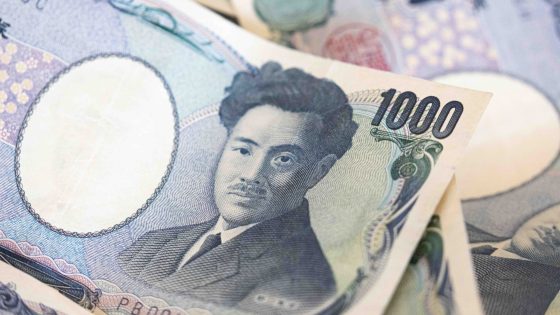The Japanese yen has weakened significantly against the dollar in 2022.
Stanislav Kogiku | SOPA Images | LightRocket | Getty Images
The Japanese yen weakened to 160 against the U.S. dollar in Monday morning trading in Asia.
The yen briefly touched 160.03 against the dollar, the weakest level since April 1990 when it touched 160.15, according to FactSet data.
The currency has languished alongside continued strength in the greenback as Federal Reserve rate cut expectations get pushed back. The Fed’s preferred inflation gauge came in slightly hotter than expected on Friday, underlining the difficulty the U.S. central bank faces in tackling sticky inflation.
The yen has traded around 150 or weaker against the dollar since the Bank of Japan ended its negative interest rate regime in March. On Friday, the central bank held rates and slightly raised its inflation expectations for fiscal 2024.
Three-month performance of the Japanese yen against the U.S. dollar
In a press conference Friday, BOJ Governor Kazuo Ueda said exchange rate volatility would only affect monetary policy if there was a “significant” impact on the economy, according to a Reuters translation of his remarks.
“If yen moves have an effect on the economy and prices that is hard to ignore, it could be a reason to adjust policy,” Ueda said, according to a Reuters translation.
Japanese authorities have repeatedly warned against “excessive” moves in the yen, but have made no official announcements about bolstering the currency. Some market watchers had suspected authorities would intervene at the 155 level, but the yen slid past that mark last week.
Vincent Chung, associate portfolio manager for T. Rowe Price’s diversified income bond strategy, noted that officials seem more focused on volatility in the currency, rather than specific levels.
“The current pace of depreciation is less than in 2022 so the intervention response could be less intense,” Chung said, noting option pricing suggests markets predict intervention could come after the BOJ’s May meeting.
Still, Chung said yen weakness has “positively impacted stock performance, encouraged corporations to raise wages, and moved the country closer to the Bank of Japan (BoJ)’s inflation target of 2%.”
Japanese markets are closed Monday for a public holiday.
This is breaking news. Please check back for updates.
Source Agencies

